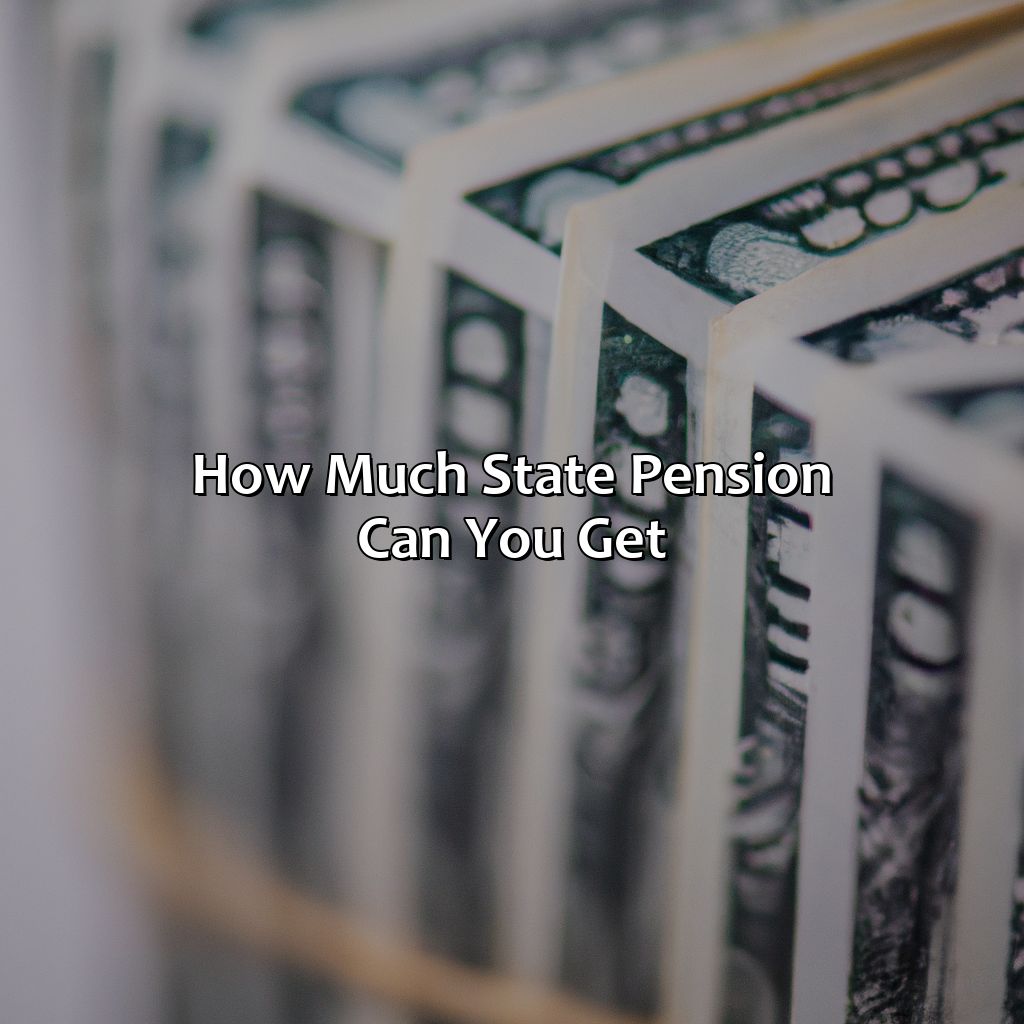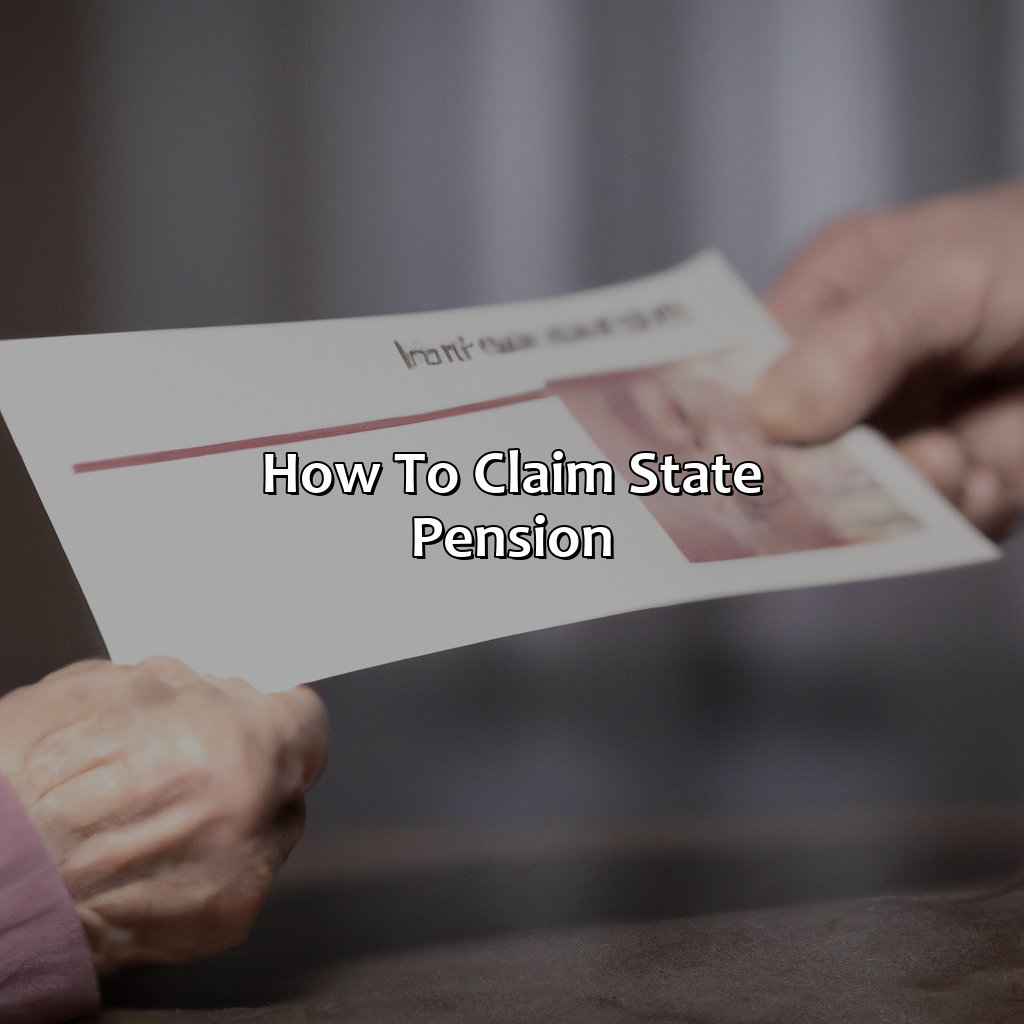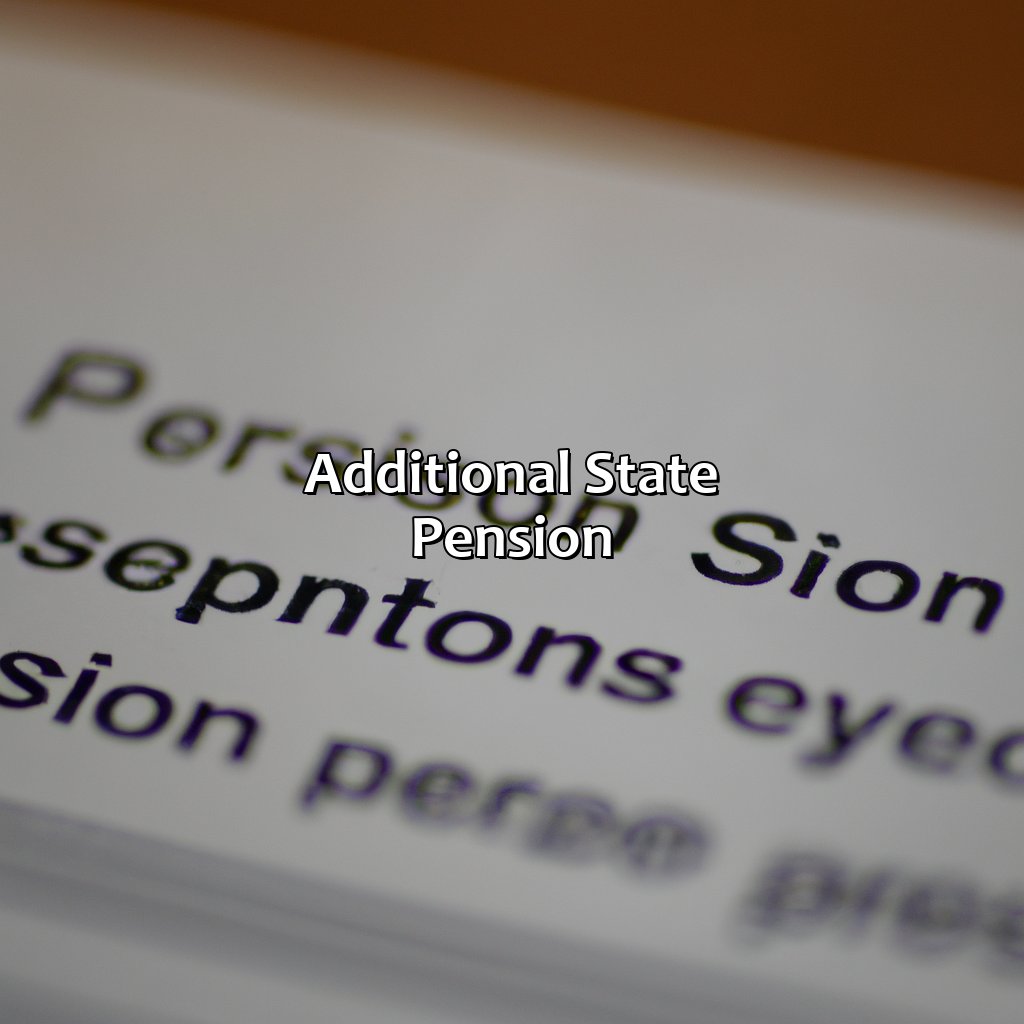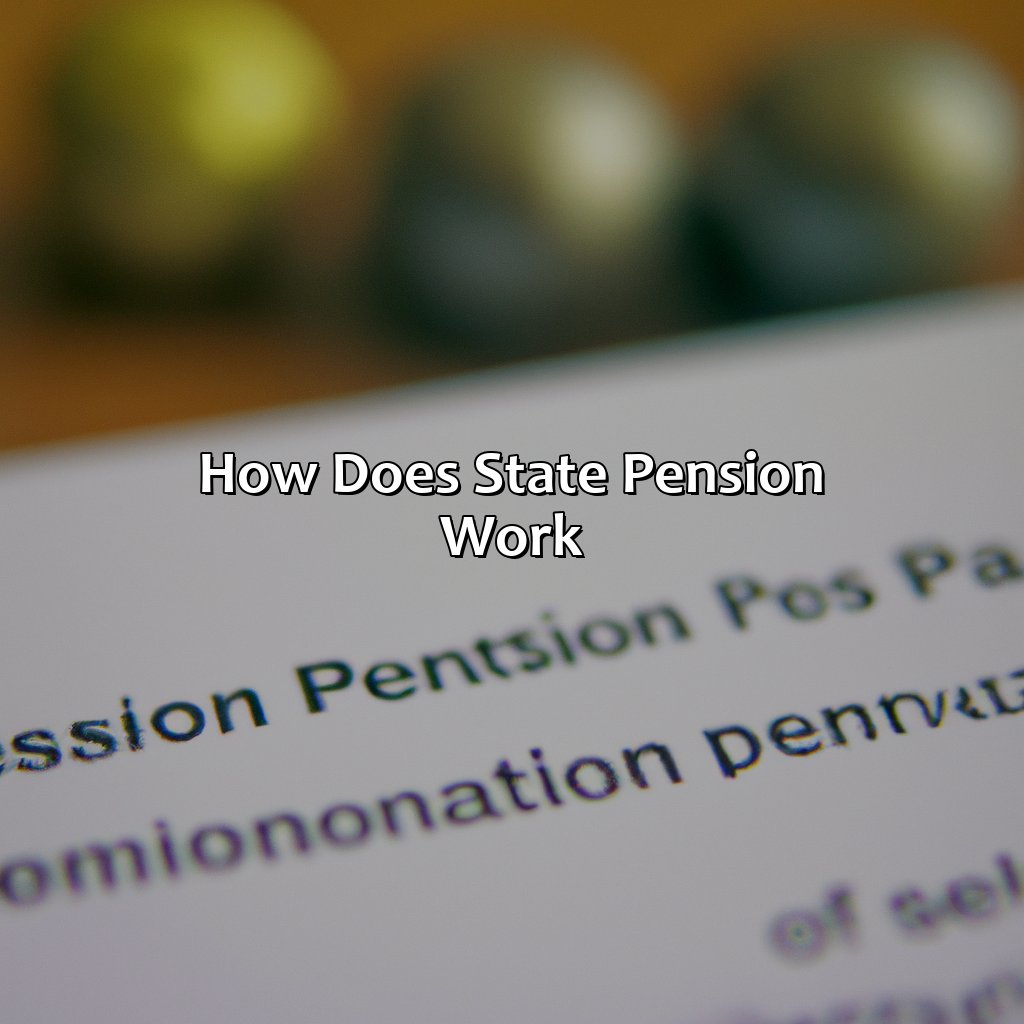How Does State Pension Work?
Key Takeaway:
- State Pension is a regular payment from the government that you can claim when you reach State Pension age. It is designed to provide you with a basic income in retirement.
- To be eligible for State Pension, you need to have reached State Pension age and have made enough National Insurance contributions throughout your working life. The number of years required to qualify depends on your birthdate and gender.
- The amount of State Pension you can get depends on whether you qualify for the Basic State Pension or the New State Pension, as well as factors such as your National Insurance record and any additional State Pension you may be entitled to. You can check your State Pension entitlement online.
Are you confused about how state pension works? You’re not alone; many people don’t understand how retirement benefits are calculated or if they qualify. In this article, you’ll learn all you need to know about state pension and how to make sure you get your full entitlement.
Overview of State Pension
State Pension – An Informative Overview
State Pension is a government-funded scheme that provides a regular income to individuals who have contributed through National Insurance payments. This pension is designed to support individuals in their retirement years, providing financial security.
To qualify for State Pension, individuals need to have made sufficient National Insurance contributions, which can be checked through the UK government’s website. The amount of pension an individual receives depends on their paying record and the age at which they retire.
In addition to the basic State Pension, individuals may also be eligible for additional State Pension or Pension Credit, which provides supplementary financial support to those on low incomes. These options can be explored further through the UK government’s website or by speaking with a financial advisor.
It is important to note that individuals can choose to defer their State Pension, which can increase the amount they receive when they do begin to claim. Deferring State Pension can be a strategic option for those who are still earning or wish to increase their retirement income. If you are wondering when should you apply for old age pension, it’s always better to plan ahead and understand the various options available.
A real-life example of the importance of State Pension is the story of Sarah, who owned a successful business but had not paid into National Insurance for a number of years. When she reached retirement age, she found herself without a pension and struggling to make ends meet. Through the support of the government’s Pension Credit scheme, Sarah was able to receive financial assistance and improve her quality of life in her senior years. If you’re wondering what is the UK State Pension and how it works, it’s important to understand its significance in ensuring financial security during retirement.

Image credits: retiregenz.com by Joel Washington
Eligibility for State Pension
Do you want to learn if you are eligible for state pension? There are two determining criteria: age and National Insurance Contributions. Satisfy these sub-sections to receive the benefits. Find out more by continuing to read!

Image credits: retiregenz.com by Adam Arnold
Age
The required milestone for obtaining State Pension benefits is determined by a unique attribute of the individual’s life, known as the eligibility age. This is usually based on an individual’s gender and birthdate and can vary from person to person.
State Pension benefits will only be granted after reaching that particular eligibility age. It is essential to note that there may be other conditions that must be met based on nationality or contributions paid towards National Insurance.
It is important to consult with a financial advisor or explore options on the government website to determine if you are eligible and when you can get your State Pension payments routinely.
Pro Tip: You can increase your state pension by continuing to work past the eligibility age, deferring your payments until later in life, or paying additional contributions for additional qualifying years.
National Insurance Contributions – because nothing says ‘I’m getting older’ like getting excited about paying into a pension scheme.
National Insurance Contributions
Contributions to the Government’s Social Security scheme play a crucial part in determining State Pension eligibility. Without this, individuals may not receive payments when they reach retirement age. The amount paid varies depending on earnings, employment history, and age.
It is important to note that recent changes within the system mean that the number of contributory years required has risen from 30 to 35, affecting those with work gaps or periods spent in part-time employment. Additionally, contributions made through self-employment are treated differently from those made through salaried work. If you’re wondering when you will receive your state pension, make sure you keep these changes in mind.
Experts advise individuals to access their National Insurance record via HM Revenue & Customs’s online portal regularly. This ensures that any discrepancies can be rectified promptly and contributions can be maximized before retirement age.
One individual failed to realize that three years’ worth of contributions were missed due to an administrative error by their former employer. Without regular checks via HMRC’s website, they would not have known until it was too late for rectification.
Get ready to retire in style…or at least in ramen noodle style with the amount of State Pension you can receive!
How much State Pension can you get?
To know how much State Pension you can get, look into the facts of Basic State Pension and New State Pension. These two sections give different answers for those who get State Pension. It depends on age, National Insurance payments and other things.

Image credits: retiregenz.com by David Arnold
Basic State Pension
The fundamental state pension is a guaranteed payment from the government upon your retirement. The payment amount is based on several variables, including national insurance contributions.
Depending on the qualification conditions met, individuals may be eligible for a Category A State Retirement Pension which may include an ‘additional state pension’ or a ‘protected payment.’
A protected payment denotes an increase in the overall sum received if you have been hit by state pension reforms that came after April 6th 2016.
Wondering when does the state pension increase?
Pro Tip: It’s critical to know that you can still receive other pensions and benefits alongside your Basic State Pension payments.
Why save for retirement when the government’s got your back with the New State Pension? Just don’t spend it all in one place…like the funeral home.
New State Pension
The latest government pension scheme guarantees a regular income for individuals after retirement. It depends on numerous factors, such as National Insurance contribution history and age.
This pension scheme is unique because it offers more significant value to individuals with a consistent work record of paying National Insurance Contributions.
Individuals every year should verify their National Insurance payments, which will guarantee they receive maximum State Pension entitlement in the future.
If you’re planning to move abroad, you might wonder what happens to your state pension. Depending on the country you move to and your individual circumstances, your state pension may be affected. It’s important to do your research and plan ahead to ensure you receive the pension benefits you’re entitled to.
This system came into existence in April 2016 as a replacement for the old State Pension scheme. Since then, numerous modifications have been made to make it fairer and more accessible for everyone.
Claiming State Pension? It’s easy, just fill out the paperwork, provide some evidence of your existence, and hope that the government doesn’t forget about you.
How to claim State Pension
State Pension Claim: A Professional Guide
Applying for State Pension can be a vital component of financial planning for retirees. Here’s how to apply for the pension in an informative and professional manner.
- Step 1 – Check if You Qualify
Before anything else, it is essential to determine if you are eligible for State Pension. This can be done online or by telephone. - Step 2 – Gather Required Information
You will need to provide various pieces of information such as your National Insurance number, bank account details, and proof of identification. - Step 3 – Submit Your Application
Once you have verified your eligibility and gathered your information, you can apply for State Pension online, over the phone, or by mail.
Important Considerations
It’s critical to note that the amount of State Pension you receive, and the age at which you can claim it, is subject to change. Keeping up to date on changes to pension policy and your eligibility status is essential to ensure that you receive your full entitlement. If you’re unsure about what certain terms mean, such as opting out of state pension, it’s important to do your research and seek advice from a financial advisor if necessary.
Some Suggestions
Ensure that your National Insurance contributions are up to date to maximize your State Pension entitlement. Additionally, consider contributing to a private pension to supplement your retirement income. These actions can help you meet your financial needs in your golden years.

Image credits: retiregenz.com by Adam Woodhock
Additional State Pension
The Enhanced State Pension: What It Entails
The Enhanced State Pension, also known as the Second State Pension (S2P), is an additional pension that supplements your basic state pension. It is based on the number of qualifying years you have contributed to the National Insurance Scheme and is available for those who reached the state pension age on April 6, 2016, or later.
This pension replaces the State Earnings-Related Pension Scheme (SERPS) and offers a maximum additional pension of 179.60 per week, subject to the number of qualifying years you have accumulated. If you’re wondering what is the State Second Pension Scheme, it is a government pension scheme that aims to provide you with additional pension income.
The Enhanced State Pension is not automatic, and you need to have made contributions to the National Insurance Scheme to claim the benefit. To qualify, you need to have earned over a specific amount during each tax year.
Of note, those who were contracted out of the Additional State Pension will see a reduction in their Enhanced State Pension. On the other hand, if you are looking for ways to opt out of pension and have accumulated years of National Insurance contributions, you may gain an additional pension, depending on the circumstances.

Image credits: retiregenz.com by Yuval Woodhock
Changes to State Pension
The State Pension has undergone several alterations, including changes to the age at which it is accessible, the amount of payment and the eligibility criteria. The changes in qualifying years required for receiving the full pension have been modified. To stay up-to-date, individuals should regularly check their State Pension entitlement.
It is essential to note that, since April 2016, the State Pension age has increased for both males and females. It is essential to be aware that the amount of pension payment can also be affected by factors such as the individual’s National Insurance record.
It is crucial to recognize that not everyone will receive the full State Pension amount, and individuals may need to undergo individual assessments to determine their specific entitlement.
According to a report by the Office for Budget Responsibility, the UK State Pension is costly and challenging to sustain, with a forecast that it will account for 8% of GDP by 2055.

Image credits: retiregenz.com by Joel Duncun
Five Facts About How State Pension Works:
State pension is a regular payment made by the government to eligible individuals to support their living expenses in old age. (Source: Gov.uk)
The amount of state pension you can get depends on your National Insurance contributions over your working life. (Source: Money Advice Service)
To be eligible for the full state pension, you need to have at least 35 years of National Insurance contributions. (Source: Which?)
If you have less than 35 years of contributions, you may still be eligible for a reduced state pension. (Source: Age UK)
You can check your state pension eligibility and estimate your pension amount online through the government’s official website. (Source: Gov.uk)
FAQs about How Does State Pension Work?
How does state pension work?
State pension is a regular payment made by the government to people who have reached a certain age and have paid national insurance contributions. The amount you receive depends on several factors, including your national insurance record, your age, and whether you have reached retirement age or not.
What is the retirement age for state pension?
The retirement age for state pension varies depending on your date of birth. Currently, the retirement age is 66 for both men and women. However, this is set to increase to 67 in 2028 and to 68 in 2037. You can check your specific retirement age on the gov.uk website.
How much state pension will I receive?
The amount of state pension you receive will depend on your national insurance record. To receive the full amount, you need to have 35 qualifying years of national insurance contributions. The full amount in the tax year 2021-2022 is 179.60 per week. However, if you have less than 35 years of contributions, you will receive a reduced amount.
Is state pension taxable?
Yes, state pension is taxable. If your income, including your state pension, exceeds your personal allowance, you will need to pay tax on it. Your personal allowance is the amount of income you can earn before you start paying tax.
Can I defer my state pension?
Yes, you can defer your state pension if you choose to. This means that you delay taking your pension and, in return, you will receive a higher weekly amount when you do start claiming. The amount of increase depends on how long you defer, but it can be up to 1% for every nine weeks.
What happens to my state pension when I die?
If you are married or in a civil partnership, your spouse may be entitled to some of your state pension when you die. The amount they receive depends on your national insurance record and whether you reached state pension age before or after 6 April 2016. If you are single and you die before reaching state pension age, your state pension entitlement will end unless you have made provisions such as a private pension plan.
 Checkout this IRS Loophole
Checkout this IRS Loophole 
